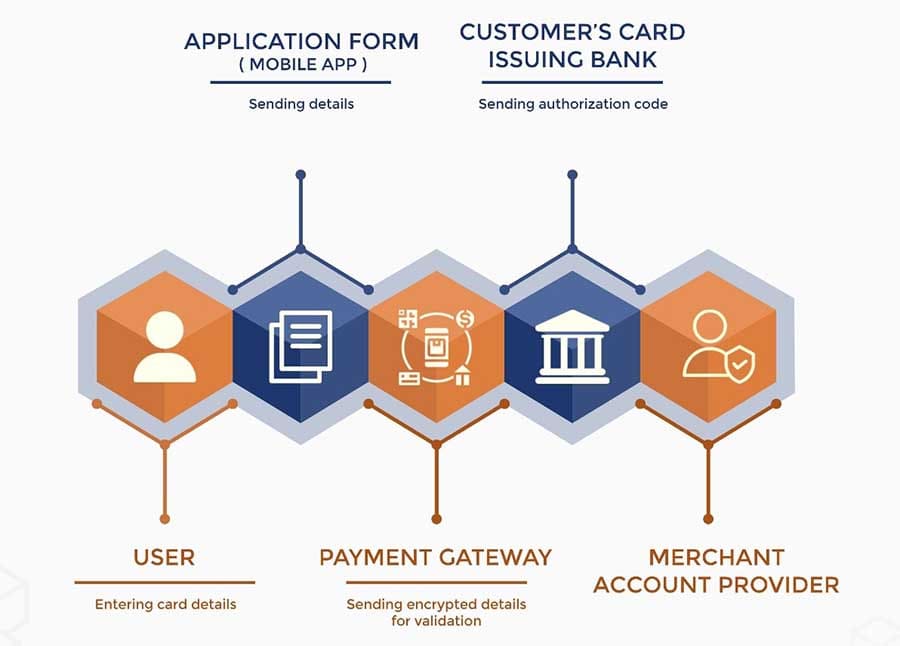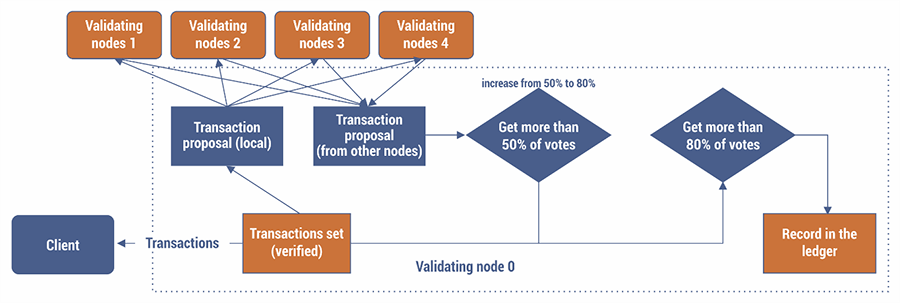Jun 15, 2021
The ongoing pandemic has spurred virtual shopping habits among the general public, forcing all retailers to move online. The shift from brick-and-mortar retail to e-commerce became more significant across countries. CBCA discusses how the integration of blockchain technology into an e-commerce business advances digital transformation.
Consumers became dependent on the digital world more than ever during the pandemic. As a result, e-commerce business was forced to advance rapidly as they had to manage ever-growing market conditions and development in the industry. Further, the e-commerce industry was facing challenges such as security measures, trust, efficiency, and trust.
The growing market scenario and the prevalent challenges can be answered through the implementation of blockchain technology. Integration of blockchain technology to an e-commerce business can facilitate advanced digital transformation by providing notable features such as decentralization, immutability, enablement of authentic transactions, traceability, and scalable customer services.
Blockchain for e-commerce
Over the last few years, blockchain technology has had its impact on many industries. With reference to the e-commerce industry, blockchain technology will help to overcome the short- and long-term challenges. The following illustration discusses the scenario of the e-commerce industry before blockchain and after the implementation of blockchain.

Figure 1: Architecture of web-based e-commerce system

Figure 2 Blockchain as e-commerce platform architecture Source: Researchgate.net
In online transactions, the buyers pay the seller through a third-party using payment systems, whereas, the ledger model gives ownership to all the participating parties and reduces the misuse of data and supports cryptocurrency as a payment mode as well. The smart contract enforces security and rules to seal a deal.
With this technical summary, let’s understand the applications of blockchain in e-commerce.
Blockchain applications in e-commerce
The e-commerce industry was looking to secure their online transactions and blockchain technology holds promise for it. Take a look.
1. Transparency
Blockchain in e-commerce provides the required level of transparency in transactions, as they are recorded in a shared ledger. The radical visibility of the transactions ensures traceability and accountability.
2. Cost-effectiveness
E-commerce sellers can depend on blockchain-led bitcoins as the mode of payment and host a number of cryptocurrencies. This removes middlemen and intermediaries from the payment process, eliminates transaction/processing fees, and facilitates retailers to achieve cost-effectiveness.
Online retailers such as Expedia, Overstock, and Microsoft are accepting bitcoins from consumers.
3. Data security
As blockchain is built on distributed ledger technology (DLT), it provides the highest level of security for online database platforms. It is predicted that the damage costs by cybercrime will hit USD 6 T by 2021, and blockchain will improve the transparency of transactions.
4. Inventory management
With blockchain, retailers can manage their inventory online with pre-defined thresholds on stocks. This ensures that the online store never runs out of stock on products.
5. Loyalty reward programs
The loyalty reward programs can be automated completely with blockchain, and it becomes easy for the e-commerce owner to offer discounts or issue reward points to customers as they reach the destined spending thresholds.
6. Identity management
Integration of blockchain to e-commerce platforms protects individual identities from theft and misuse. Blockchain helps retailers to build strong authentication mechanisms and improve identity management.
7. Logistics
With blockchain, e-commerce owners can get a reliable supply chain process from source to customers across the chain comprising of manufacturers, retailers, vendors, transportation, and etc.
blockchain ensure transparency throughout the supply chain from start to the end.
Moving forward, let’s understand how the pandemic is accelerating blockchain adoption by retailers.
Blockchain and e-commerce in the pandemic
The blockchain in the retail market was valued at USD 113.72 million in 2020 and is expected to reach USD 1936.68 million by 2026, at a CAGR of 60.4% over the forecast period 2021 – 2026 - Research and Markets
Currently, blockchain technology is applied in some retail operations such as document handling through smart contracts, compliance management, customer care automation, and transactions.
-
Oracle, Microsoft, Amazon, IBM, and SAP SE are the major players involved in developing a private blockchain under the retail lease bank guarantee.
-
With BMW, Microsoft, and PayPal accepting these forms of currencies, cryptocurrencies are becoming much more widely accepted. This has, in turn, compelled the e-commerce players to build Crypto Cart to provide rewards and incentives for the users.
-
Also, the retail industry is moving toward cloud adoption owing to its security.
-
Asia is becoming the major player in the changing landscape of the retail industry and China is leading the market with Alibaba’s pop-up store in Australia.
Conclusion:
To summarize, blockchain increases the credibility of e-commerce business processes. Blockchain creates an environment of trust and credibility in trade transactions, distribution of customer records, the progress of business transactions, and feedback of customers.
This has inspired the retailers to adopt blockchain while moving online.
As more retailers turn toward blockchain implementation, they seek blockchain professionals who are industry experts. There is a rising demand for blockchain professionals who excel in blockchain development and implementation as the industry demands.
If learning blockchain is your chosen career, then get certified in industry-related blockchain certification. Stay ahead of the industry requirements in blockchain technology.
Learn more about blockchain certifications here.










